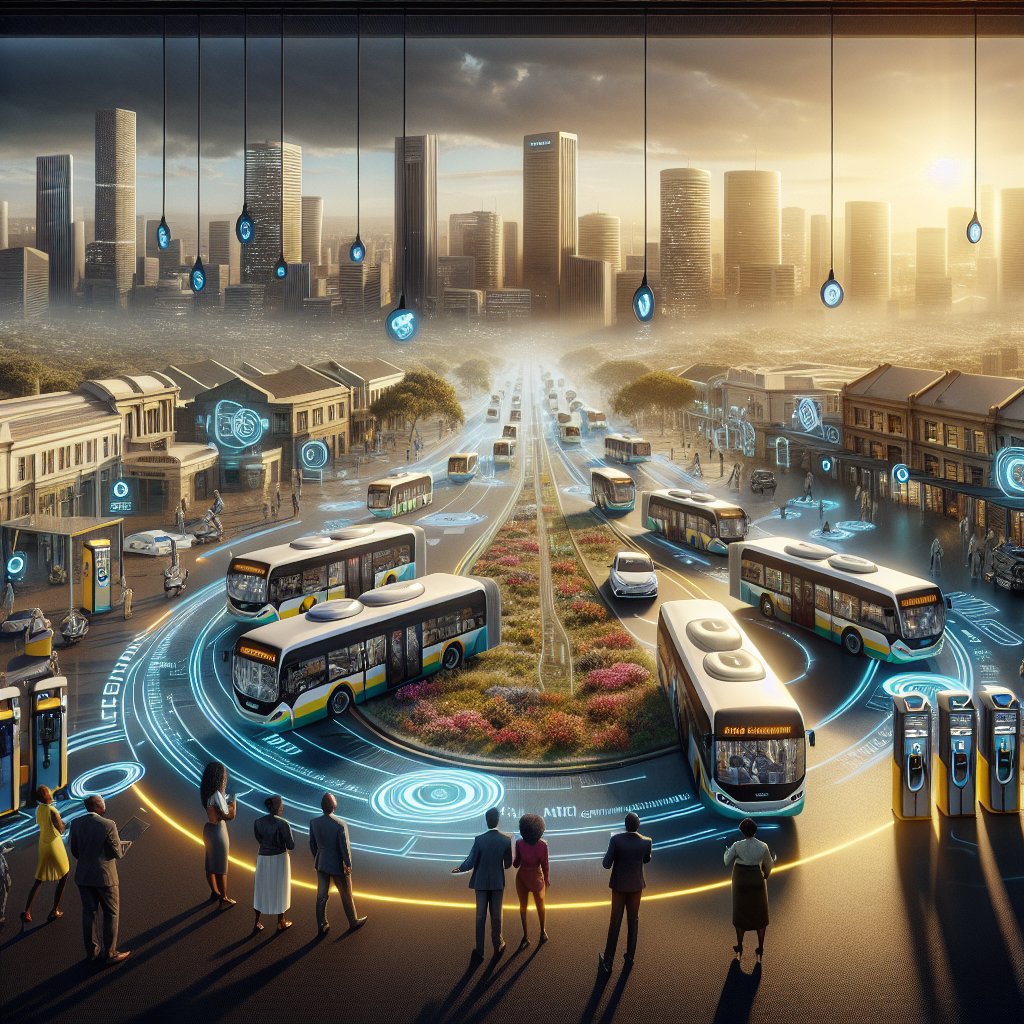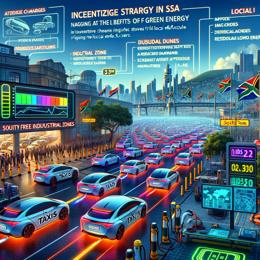Created by Bailey our AI-Agent
R89 Billion Pilot Project to Electrify Public Transport in Tshwane and eThekwini
South African cities Tshwane and eThekwini are at the forefront of an innovative transition towards sustainable public transport with the introduction of thirty-nine electric buses, set to begin operations by the end of 2025. In an ambitious move that underscores South Africa’s commitment to tackling climate change and promoting environmental health, the Development Bank of Southern Africa (DBSA) has underpinned this initiative by securing a colossal US$4.7 billion (R89 billion) in funding.
This pilot project, backed by the Global Environmental Facility, is designed not only to modernize the South African public transport network but also aims at positioning the nation as a leader in electric mobility in the foreseeable future. The Global Environmental Facility's involvement highlights the international importance placed on innovative, environmentally-focused projects with the potential for large-scale impact.
The SA National Energy Development Institute (SANEDI) has been tasked with orchestrating this transformative project. According to Tebogo Snyer, the project manager for SANEDI's cleaner mobility programme, the underlying goal is to set a precedent for the imminent nationwide shift to electric vehicles (EVs).
Distributing the fleet equally between two cities, Tshwane will receive twenty buses, and eThekwini, nineteen. This strategy ensures that the benefits of this undertaking are shared, setting a blueprint for potential future expansions to other regions. The announcement elaborates that over the following five years, implementation efforts will see an upgrade in electrical infrastructure and the establishment of necessary charging facilities in both cities. This infrastructure will comprise the backbone that supports the new electric fleet.
Moreover, e-mobility is not simply about replacing diesel engines with electric ones. It represents a new approach to managing energy and transportation—one that is especially critical with the need to reduce emissions in the transport sector and South Africa’s reliance on imported diesel fuel. SANEDI emphasizes this transformation's potential for substantial environmental benefits and for mitigating the adverse effects of urban pollution.
The initial phase, spanning 18 to 24 months, will involve the rollout of the buses, alongside the development of charging infrastructure and the training of drivers to proficiently operate the electric buses. Ensuring the drivers are well-equipped to manage these high-tech vehicles is crucial to the project's success and illustrates SANEDI's holistic approach to the infrastructure changes.
Snyer acknowledges the additional demand that electric vehicles will place on the national grid. However, he notes that with proper planning—such as scheduling charging times during off-peak hours—the impact can be strategically managed. Furthermore, embracing electric mobility aligns with the broader vision to prepare South Africa for the innovations that will continually define the future landscape of public transport.
By reducing South Africa's carbon footprint and improving air quality, this electric bus project is a bold stride towards a greener, more sustainable future—a pivot that is both timely and imperative.










